Walt Disney’s “Song Of The South,” a 1946 film blending live-action and animation, holds a unique and uncomfortable place in cinematic history. Co-directed by Harve Foster and Wilfred Jackson, this Uncle Remus adaptation is Disney’s most controversial movie, perpetually locked away from public viewing. Despite Disney+’s vast library of classics, you won’t find “Song of the South” streaming, nor will you ever, even with a disclaimer preceding it. Disney CEO Bob Iger firmly stated this stance in 2020, a decision reinforced by ongoing dialogues about racial representation in media, amplified by the Black Lives Matter movement.
Set in the American South during the Reconstruction era after the Civil War, “Song of the South” is ironically best known for inspiring the beloved Disney theme park ride, Splash Mountain. The film itself was last re-released theatrically in 1986 before being completely withdrawn from circulation. Splash Mountain, once a park favorite, has also undergone significant changes. The Magic Kingdom version at Walt Disney World in Florida closed in January 2023, followed by Disneyland’s iteration in California in May of the same year. Their replacement, Tiana’s Bayou Adventure, themed after the 2009 film “The Princess and the Frog,” featuring Disney’s first Black princess, is now open at Walt Disney World and set to open soon at Disneyland.
Further distancing itself, Disney removed the film’s Oscar-winning song, “Zip-a-Dee-Doo-Dah,” from all parades and park festivities in 2023, including the Festival of Fantasy Parade. While the tune is widely recognized and nostalgic for many, its origins are steeped in problematic racial depictions that are now widely understood. In the film, Uncle Remus, voiced by James Baskett, is based on African American folklore characters collected and published by Joel Chandler Harris, a white journalist from Georgia. The dialect and portrayal of African American life in these tales have been heavily critiqued over time. Despite Uncle Remus’s influence on authors like Beatrix Potter, the stories and their source material are largely absent from contemporary American literature due to their problematic nature.
James Baskett received an Honorary Oscar in 1948 for his performance in “Song of the South,” a bittersweet recognition as he passed away that same year, having suffered health issues during the film’s production. Film historian Karina Longworth’s “You Must Remember This” podcast in 2019 delved into the troubled legacy of “Song of the South,” highlighting the film’s minstrelsy elements and its deeply concerning depiction of post-Civil War plantation life in Georgia.
Despite its controversial nature, “Song of the South” was a commercially viable property for Disney for many years. Petitions have emerged protesting the changes at Disney parks, accusing the company of yielding to culture wars. However, Disney has remained steadfast in its decision, especially as Disney parks evolve amidst complex legal disputes, such as the one settled with Florida Governor Ron DeSantis in March 2024.
Here are 14 crucial aspects to understand about “Song of the South,” a film unlikely to resurface on streaming platforms or within Disney parks in the United States, although Splash Mountain still operates at Tokyo Disneyland in Japan.
Disney World’s Splash Mountain Reimagined as Tiana’s Bayou Adventure
 Exterior view of Splash Mountain at Walt Disney World Resort, showcasing the mountain structure and log flume track.
Exterior view of Splash Mountain at Walt Disney World Resort, showcasing the mountain structure and log flume track.
Splash Mountain, the iconic Disney World ride inspired by “Song of the South,” has been transformed into Tiana’s Bayou Adventure, honoring “The Princess and the Frog.” This shift, announced by Disney Parks in 2021, replaces the controversial themes of the original ride with a celebration of Black storytelling and representation. Concept art reveals Tiana, Naveen, and Louis amidst a vibrant Mardi Gras scene, a key element of the new attraction. The ride incorporates original music inspired by “The Princess and the Frog,” creating an immersive experience within the log flume format.
From Splash Mountain to Tiana’s Bayou Adventure: A Ride Evolution
 Concept art for Tiana's Bayou Adventure ride, featuring Tiana and friends in a bayou setting with animatronics and vibrant colors.
Concept art for Tiana's Bayou Adventure ride, featuring Tiana and friends in a bayou setting with animatronics and vibrant colors.
Following the closure of Splash Mountain across Disney parks in 2023, Tiana’s Bayou Adventure made its debut at Disney World on June 28, 2024, in Orlando, Florida. The Disneyland version in Anaheim, California, is scheduled to open later in the year. This reimagined ride, rooted in the 2009 animated film that introduced Disney’s first Black princess, is currently being previewed for cast members and special guests. While maintaining the log flume structure of Splash Mountain, the narrative and theming are entirely based on John Musker and Ron Clements’ “Princess and the Frog.”
Despite some mixed reactions regarding the storyline’s narrative depth, the technology within Tiana’s Bayou Adventure has received praise. Theme park podcast host Jack Kendall of DSNY, as reported by CNN, noted a potential narrative gap. He pointed out that for a ride featuring a significant 50-foot drop, there is “no kind of antagonist within the attraction to have that kind of push and pull of that trepidation building up the lift hill and going down the other side.” Kendall described the ride as “a lovely collection of scenes, of show scenes, very beautifully put together,” but suggested it lacks a compelling impetus for the journey.
“Zip-a-Dee-Doo-Dah” Removed from Disney Parks’ Musical Landscape
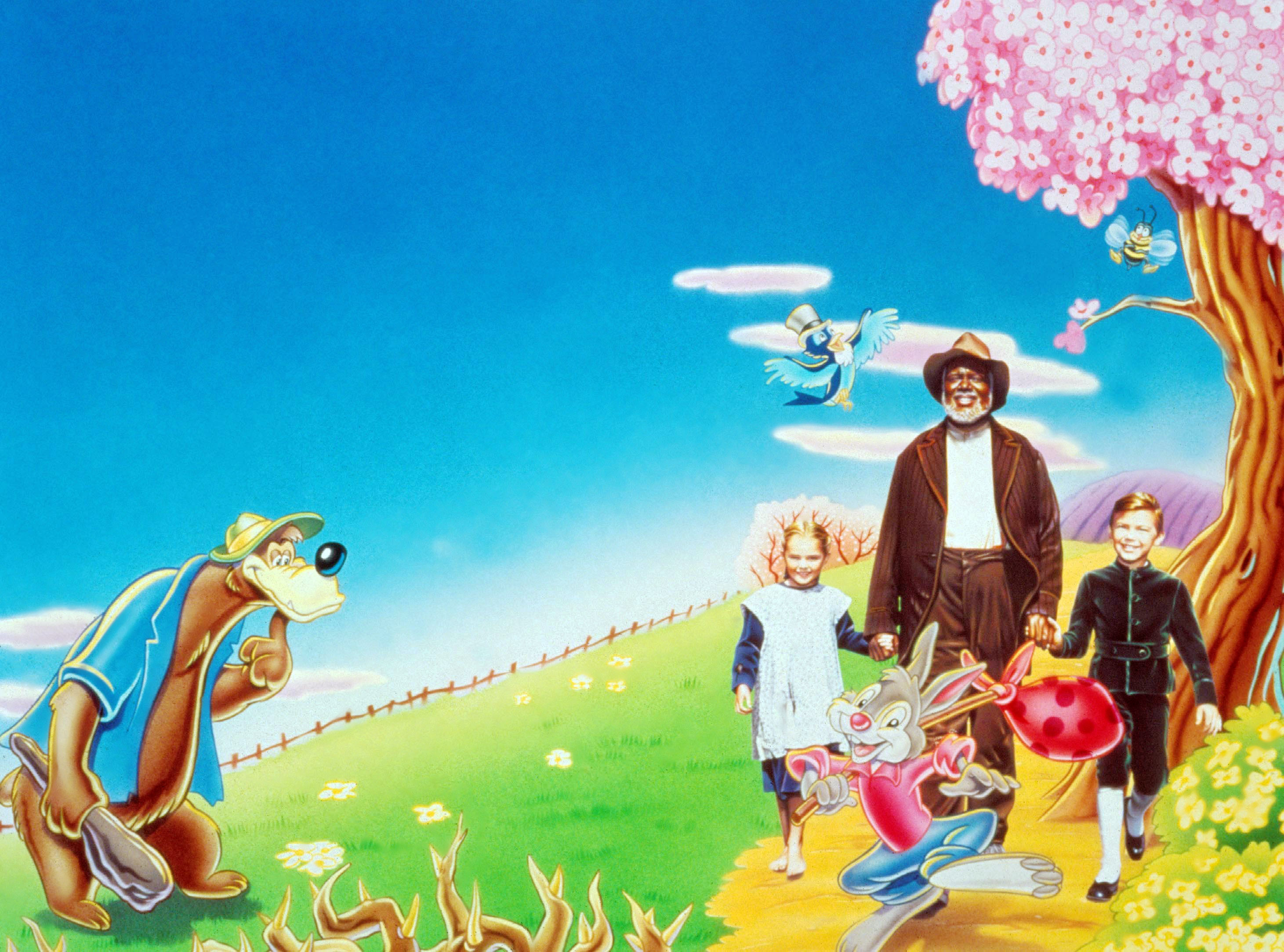 Promotional image for "Song of the South" featuring Uncle Remus and animated characters, with "SONG OF THE SOUTH" title prominently displayed.
Promotional image for "Song of the South" featuring Uncle Remus and animated characters, with "SONG OF THE SOUTH" title prominently displayed.
“Zip-a-Dee-Doo-Dah,” the Academy Award-winning song from “Song of the South,” was once a ubiquitous soundtrack element in Disney Parks and parades. However, as part of Disney’s initiative to address problematic elements associated with the film, the song has been removed from the daily Magic Happens parade at Disneyland in California. This followed its removal from the Festival of Fantasy parade at Magic Kingdom in Disney World the previous year.
The Magic Happens parade, which returned on February 24, 2023, after a hiatus, now features music from 1953’s “Peter Pan” instead, signifying a deliberate shift away from the controversial song.
Disney+ Will Never Host “Song of the South”
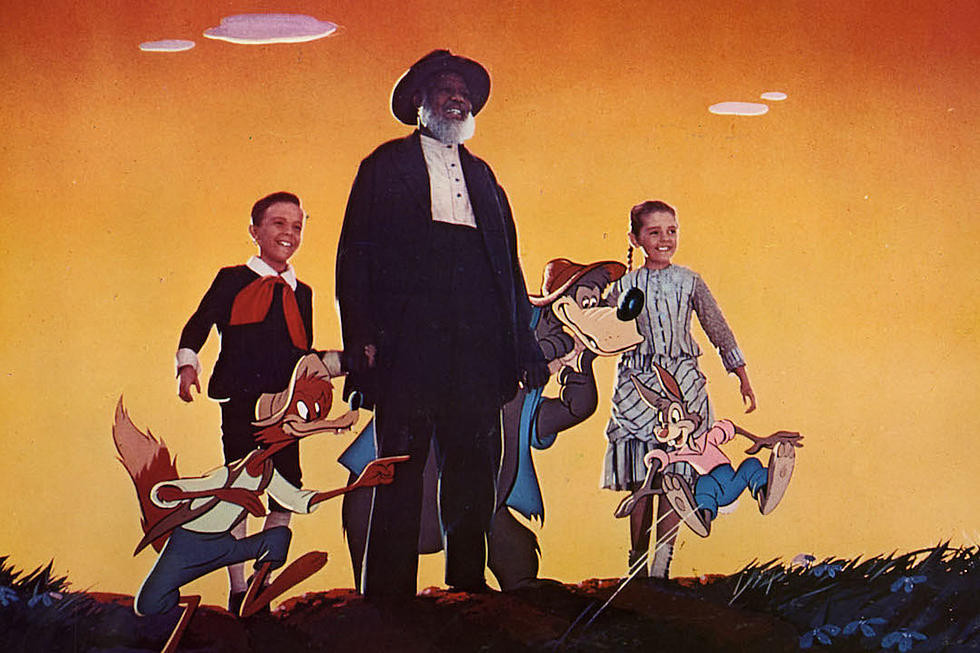 Still image from "Song of the South" featuring live-action and animated characters interacting in a field.
Still image from "Song of the South" featuring live-action and animated characters interacting in a field.
Unlike some Disney titles on Disney+ that include content warnings for outdated cultural depictions, “Song of the South” is permanently excluded from the streaming platform, even with a potential disclaimer. Disney CEO Bob Iger addressed this issue in 2020 as Disney+ expanded its classic film offerings.
During a Disney shareholder meeting, Iger responded to a question about the availability of Disney’s library on the streaming service. He stated unequivocally that “Song of the South” is “not appropriate in today’s world” and will not be re-released in any format.
The Firm “No” to Disney+: “Song of the South”‘s Streaming Fate
 Still image from "Song of the South" featuring live-action and animated characters interacting in a field.
Still image from "Song of the South" featuring live-action and animated characters interacting in a field.
Disney CEO Bob Iger has explicitly stated that “Song of the South” “wouldn’t necessarily sit right or feel right to a number of people today.” Despite this firm stance, some have argued for its inclusion on Disney+ as a historical artifact, contextualized appropriately.
The late Hollywood historian Cari Beauchamp argued in The Guardian, “To not include it is to pretend it doesn’t exist. They do exist and they need to be put in context: when was it made? What world was it reflecting? Disney loves being praised for having princesses that are from diverse backgrounds, but you have to look at the whole history.” This perspective highlights the debate between erasure and contextualization in dealing with problematic historical media.
James Baskett’s Oscar: Acknowledging Performance Amidst Controversy
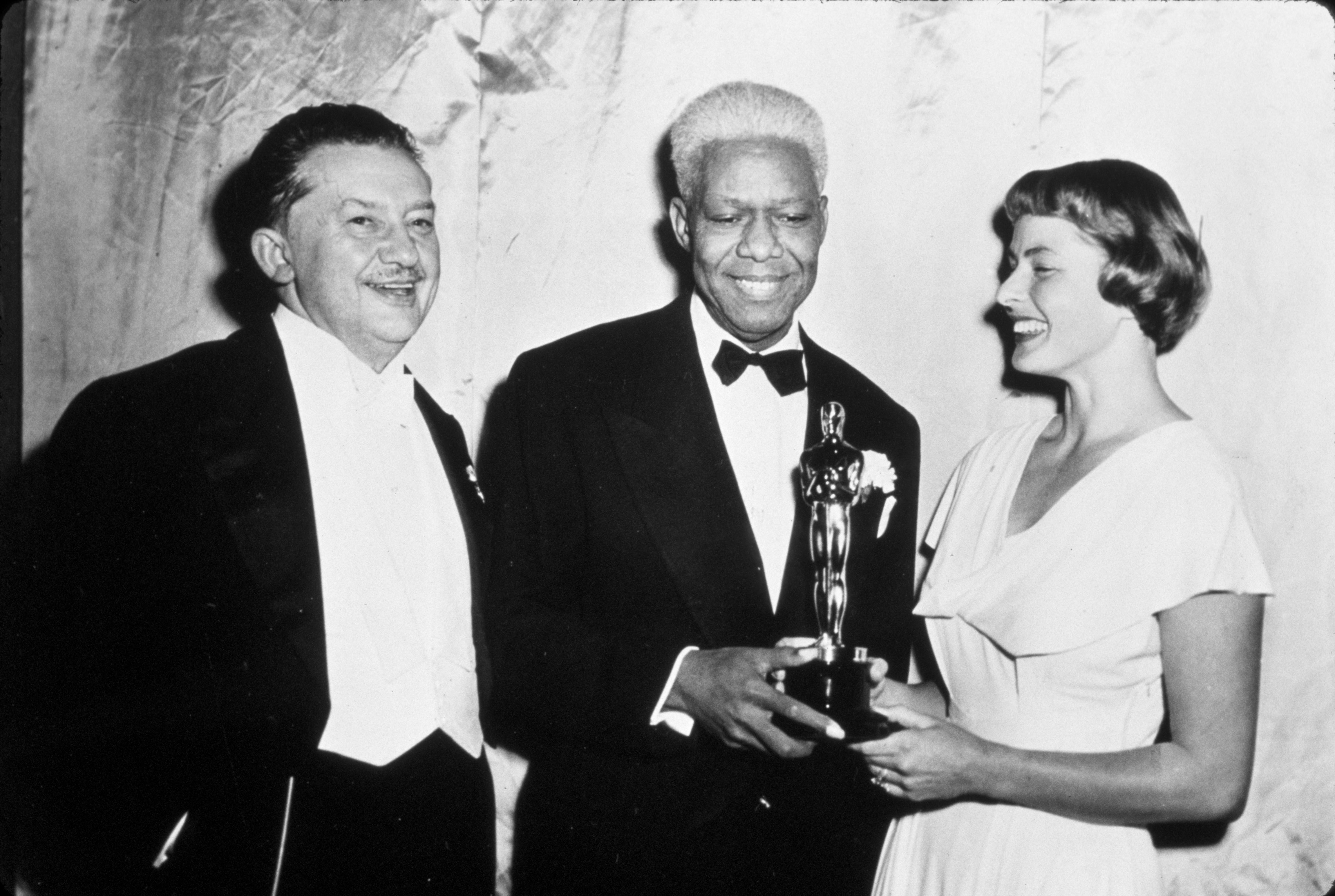 Black and white film still of James Baskett as Uncle Remus with Bobby Driscoll as Johnny in "Song of the South".
Black and white film still of James Baskett as Uncle Remus with Bobby Driscoll as Johnny in "Song of the South".
James Baskett received an Honorary Academy Award for his portrayal of Uncle Remus, the storyteller and life-lesson dispenser to Bobby Driscoll’s character, Johnny, who relocates to his grandmother’s plantation from Atlanta. Uncle Remus, originating from Joel Chandler Harris’s collections, is often cited as an early example of the “Magical Negro” trope prevalent in Hollywood. Baskett’s Oscar win occurred in March 1948, tragically followed by his death later that year due to complications from diabetes.
“Zip-A-Dee-Doo-Dah”: The Film’s Enduring, Problematic Anthem
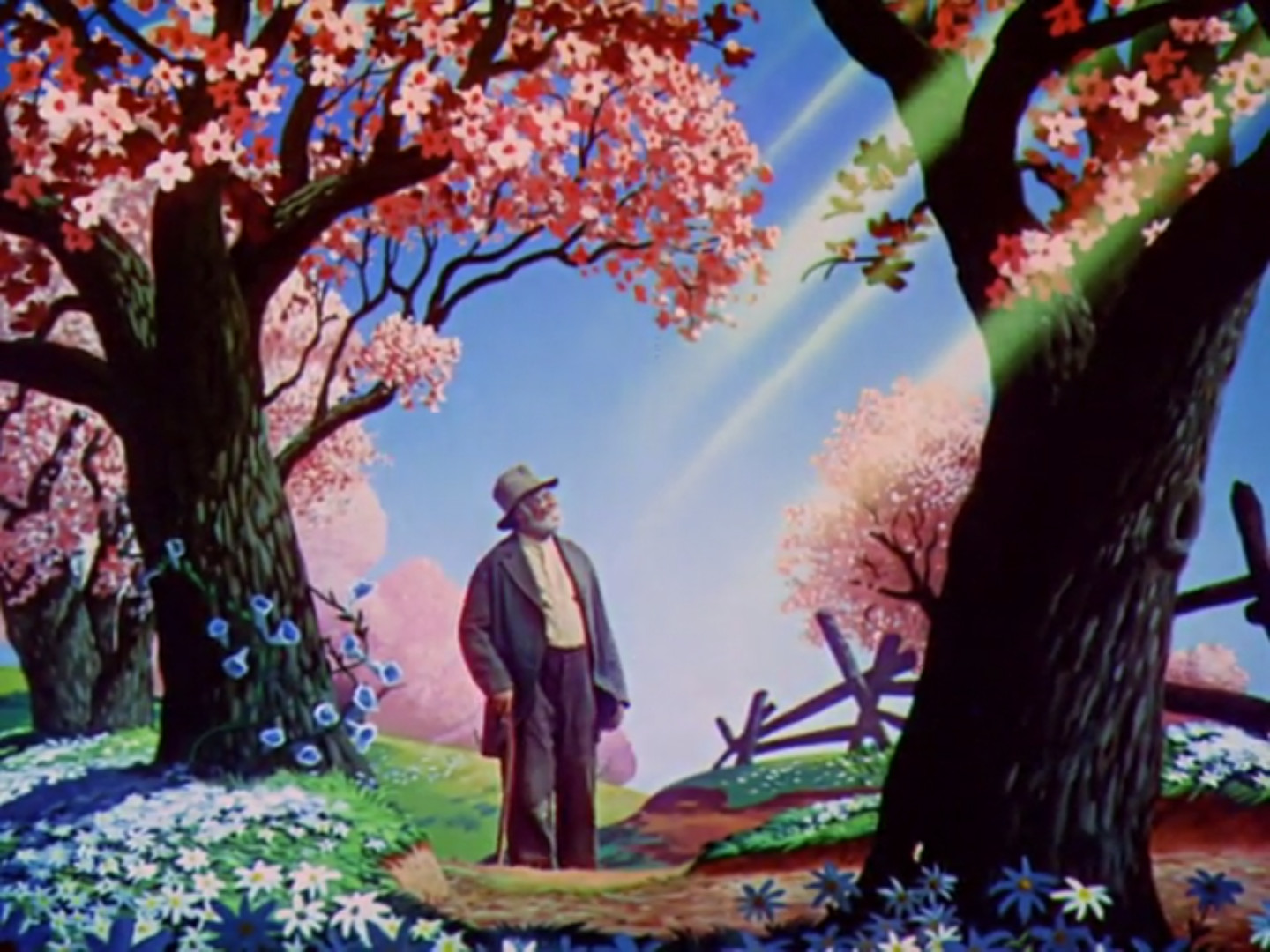 Animated image of Uncle Remus looking at the sun with Brer Rabbit and Brer Fox in the background, from "Song of the South".
Animated image of Uncle Remus looking at the sun with Brer Rabbit and Brer Fox in the background, from "Song of the South".
The undeniably catchy “Zip-a-Dee-Doo-Dah,” composed by Allie Wrubel with lyrics by Ray Gilbert, earned the Academy Award for Best Original Song. Despite its cheerful melody and enduring popularity as a Disney tune, its origins in “Song of the South” link it to the film’s deeply problematic racial context.
NAACP’s Condemnation: A “Dangerously Glorified Picture of Slavery”
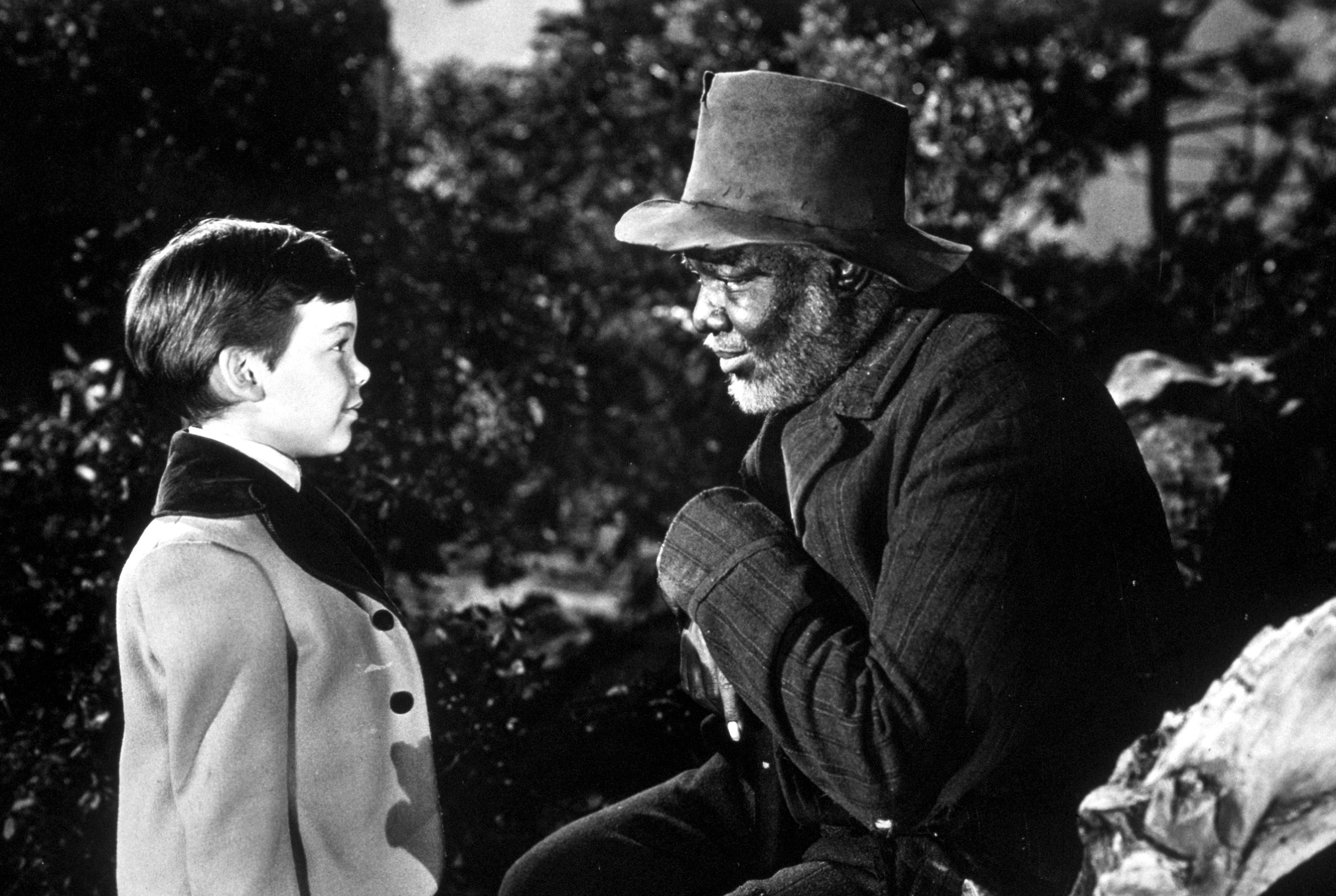 Film still from "Song of the South" featuring African American workers in a field with white characters observing in the background.
Film still from "Song of the South" featuring African American workers in a field with white characters observing in the background.
The NAACP acknowledged the technical achievements of “Song of the South,” particularly its innovative blend of animation and live action. However, the organization issued a statement expressing regret that “in an effort neither to offend audiences in the North or South, the production helps to perpetuate a dangerously glorified picture of slavery.” The NAACP criticized the film for giving “the impression of an idyllic master-slave relationship, which is a distortion of the facts,” highlighting the film’s central flaw: its romanticized depiction of plantation life and race relations in the post-Civil War South.
Splash Mountain’s Origins: Born from “Song of the South” in the 1990s
 Entrance to the Briar Patch gift shop near Splash Mountain at Walt Disney World, featuring Brer Rabbit figure.
Entrance to the Briar Patch gift shop near Splash Mountain at Walt Disney World, featuring Brer Rabbit figure.
The characters, songs, and settings of “Song of the South” directly inspired Splash Mountain, a beloved log flume ride at Disneyland and Disney World. Opened in 1989, the ride draws heavily from the film’s animated segments, featuring Br’er Rabbit as the central character, alongside antagonists Br’er Fox and Br’er Bear. This enduring theme park attraction kept the legacy of “Song of the South” alive for decades, even as the film itself became increasingly controversial and inaccessible.
“Song of the South”: Absent from US Home Video
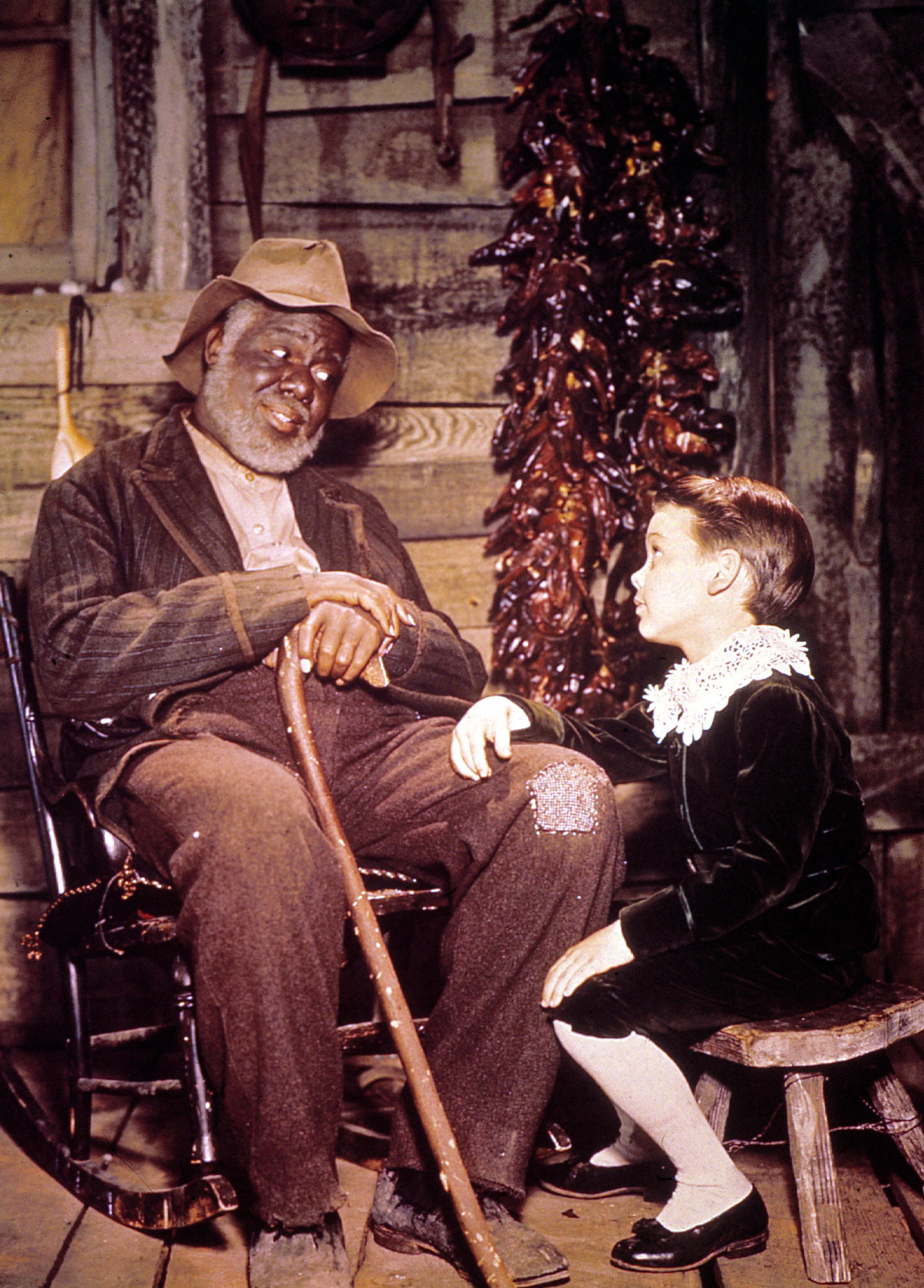 Film still of James Baskett and Bobby Driscoll from "Song of the South" in a home video style frame.
Film still of James Baskett and Bobby Driscoll from "Song of the South" in a home video style frame.
“Song of the South” has never been officially released on home video in the United States. In 2019, Disney CEO Bob Iger explained that re-releasing the film, even for financial gain, “wouldn’t be in the best interest of our shareholders.” While no US DVD or Blu-ray exists, VHS and LaserDisc versions were released internationally, making the film somewhat accessible outside of the US market, albeit in outdated formats.
Divided Black Press: Not Universally Condemned
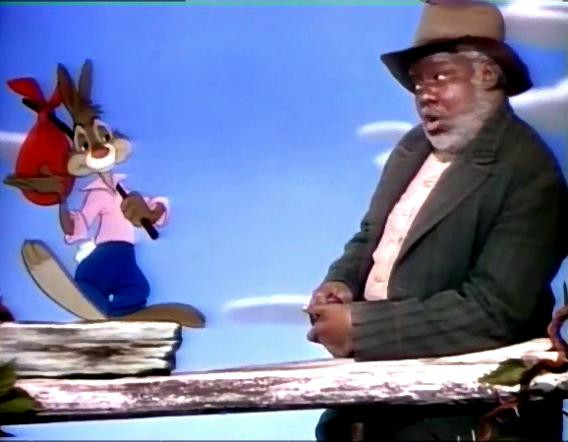 Animated image of Brer Rabbit from "Song of the South" standing in a field.
Animated image of Brer Rabbit from "Song of the South" standing in a field.
While Richard Dier of The Afro-American strongly criticized “Song of the South” as “as vicious a piece of propaganda for white supremacy as Hollywood ever produced,” opinions within the Black press were not monolithic. Herman Hill, a civil rights activist and journalist for The Pittsburgh Courier, argued that the film could “prove of inestimable goodwill in the furthering of interracial relations.” Hill dismissed criticisms as “unadulterated hogwash symptomatic of the unfortunate racial neurosis that seems to be gripping so many of our humorless brethren these days,” illustrating the diverse perspectives within the Black community at the time of the film’s release.
Disney’s Early Unease: Recognizing the “Dangerous” Racial Terrain
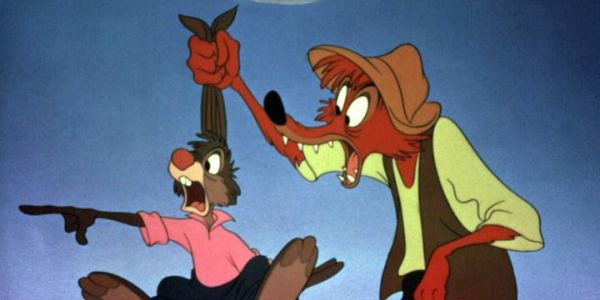 Behind-the-scenes image from "Song of the South" production, showing production crew and equipment.
Behind-the-scenes image from "Song of the South" production, showing production crew and equipment.
Even during the production of “Song of the South,” Disney was aware of the sensitive racial issues surrounding the project. Studio publicist Vern Caldwell communicated to producer Perce Pearce that “the negro situation is a dangerous one.” Caldwell highlighted the precarious position Disney was in, noting “between the negro haters and the negro lovers there are many chances to run afoul of situations that could run the gamut all the way from the nasty to the controversial,” revealing the studio’s internal anxieties about the film’s potential reception.
Cast Defenses: Standing By “Song of the South”
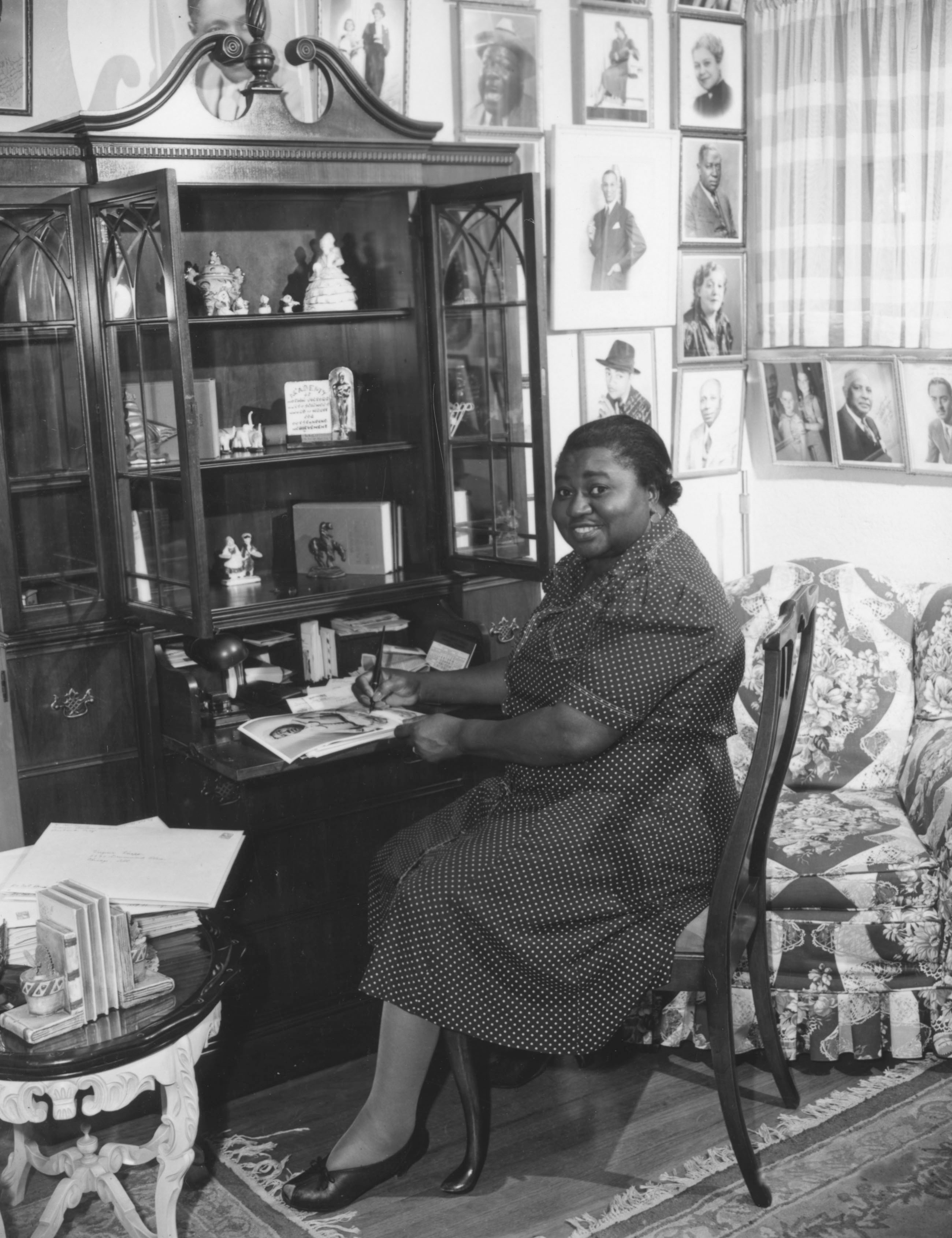 Candid black and white portrait of Hattie McDaniel, smiling and looking directly at the camera.
Candid black and white portrait of Hattie McDaniel, smiling and looking directly at the camera.
The cast of “Song of the South” included notable Black actors like Hattie McDaniel, the first Black Oscar winner for “Gone With the Wind.” McDaniel defended the film in a 1947 interview with The Criterion, stating, “If I had for one moment considered any part of the picture degrading or harmful to my people, I would not have appeared therein.” James Baskett echoed this sentiment, asserting, “I believe that certain groups are doing my race more harm in seeking to create dissension than can ever possibly come out of the ‘Song of the South,’” indicating the complex and varied opinions surrounding the film even within the Black artistic community involved in its creation.
Box Office Success: Resonating Decades Later
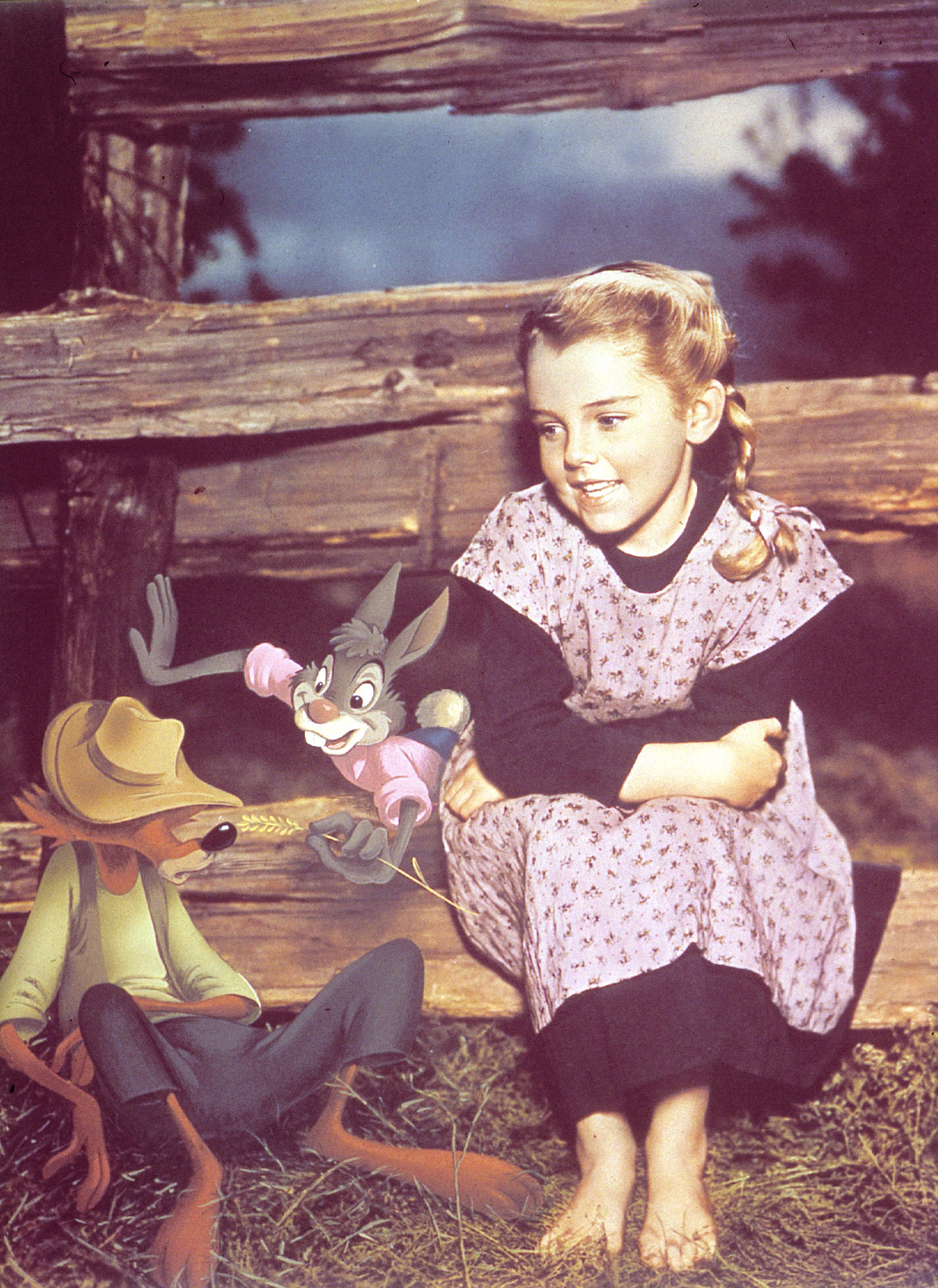 Film still from "Song of the South" featuring Luana Patten with animated birds in a live-action scene.
Film still from "Song of the South" featuring Luana Patten with animated birds in a live-action scene.
In the 1980s, Disney re-released many of its classic animated films to capitalize on nostalgia, and “Song of the South” was among them. Despite the initial controversy and negative critiques from 1946, the film still achieved significant box office success during its 1986 re-release, earning over $17 million. This demonstrated the film’s enduring appeal to audiences, even decades after its initial release, highlighting the complexities of its legacy – both commercially successful and culturally problematic.
In conclusion, “Song of the South” remains a significant yet deeply troubling artifact in Disney’s history. Its absence from Disney+ and the reimagining of Splash Mountain reflect a necessary reckoning with its racist depictions. While the film achieved commercial success and produced memorable songs and characters, its legacy is permanently stained by its romanticized portrayal of the antebellum South and its harmful stereotypes. Disney’s current stance acknowledges the film’s problematic nature, prioritizing inclusivity and responsible storytelling for contemporary audiences, even as it navigates the complexities of its own historical catalog.
